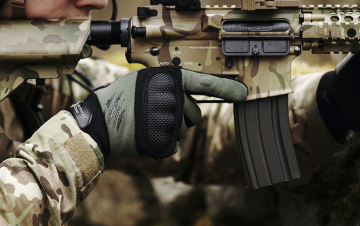lawyer, 23 years of experience in enforcement.
The procedure for bringing military servicemen to administrative responsibility (trial)
Administrative responsibility of military personnel is a form of legal responsibility for an offense that is not related to the performance of official duties by military personnel and is not criminally punishable. It applies to conscripts, including during the period of their military training on the territory of military units and military facilities.
The object of the offense is usually the proper performance of military service.
In accordance with clause 5 of ch. ІІІ of Instructions No. 329, the protocol on bringing to administrative responsibility is sent to the court and, accordingly, the decision on bringing to administrative responsibility is adopted by the court.
In accordance with clause 5 of ch. ІІІ of Instructions No. 329, the case formed no later than within 3 days from the date of drawing up the protocol, with a cover letter signed by the commander, is sent to the court for consideration and making the appropriate decision.
In the accompanying letter to the case, which is sent to the court, the circumstances, place, time, essence of the military administrative offense committed by the serviceman (conscript) and the request to inform the military unit (military management body, law enforcement service management body, DSST management body) of the adopted court decision.
Drawing up of the protocol and accompanying materials and sending these materials to the court are carried out taking into account Art. 38 of the Code of Administrative Offenses, according to the requirements of which an administrative penalty can be imposed no later than within three months from the date of the commission of the offense, and in the case of an ongoing offense - no later than within three months from the day of its detection.
During the trial, the judge, in whose proceedings is the case of the commission of a military administrative offense by a serviceman, establishes the presence or absence of such an offense, the cause-and-effect relationship, the guilt of the given person in committing it, and other circumstances that are important for the adoption of the correct and objective decision in the case. Such data in accordance with Art. 251 of the Code of Administrative Offenses are established by the protocol on the administrative offense, the explanations of the person who is brought to administrative responsibility, the victims, witnesses, material evidence, the testimony of technical devices and technical means that have the function of photo and film shooting, video recording, the opinion of an expert, as well as other evidence.
In accordance with the provisions of Art. 277 of the Code of Administrative Offenses, cases on administrative offenses of servicemen are considered within 24 hours.
As a benchmark for the formation of an exemplary list of evidence, according to
with the help of which it is possible to establish the guilt of a serviceman in
committing a military administrative offense, there is a valid judicial practice. Such evidence can include:
1) a protocol on a military administrative offense,
consisting of the relevant offense provided for in ch. 13-B of the Code of Administrative Offenses;
2) orders of the commanders of the military unit in which he serves
serviceman;
3) the conclusion of an official investigation into the fact of committing a military administrative offense;
4) written explanations, report;
5) information (for example, a record of registration and securing of weapons (ammunition located at an operational point (checkpoint));
6) copies of books, magazines (for example, a copy of the magazine of the name list of the evening check of personnel for the corresponding month and year);
7) service and medical characteristics of a serviceman who committed a military administrative offense;
8) functional duties of a serviceman;
9) contract on the completion of military service by citizens of Ukraine in the relevant position;
10) expert opinion and other documents.
After studying the judicial practice, one can come to the conclusion that most often the courts close proceedings on military administrative offenses due to improper preparation of administrative case materials. For example, in case No. 445/2006/18 dated February 1, 2019, the court came to the conclusion that it was unfounded to bring a serviceman to administrative responsibility due to the lack of sufficient and convincing evidence in the case file that would confirm the presence of an administrative offense in his actions.
Yes, the job description for a soldier in the military service under contract signed by the Head of the National Guard Center of Ukraine in the file, however, without specifying the date and without a note that the serviceman himself was familiar with it.
In the protocol drawn up under Art. 172-20 of the Code of Administrative Offenses does not specify the circumstances of the objective side of the offense committed by a serviceman, which would correspond to the provisions of this article, namely: drinking alcoholic or low-alcohol beverages or the use of narcotic drugs, psychotropic substances or their analogues by a serviceman on the territory of a military unit, or appearing on the territory of a military unit in a drunken state, in a state of narcotic or other intoxication, or performing his duties of military service in a drunken state, in a state of narcotic or other intoxication.
According to clause 10 of the ІІІ of Instructions No. 329, after receiving a copy of the court decision regarding a military serviceman (conscript) in respect of whom an authorized official of this body has drawn up a protocol, the head of the military administration body must, within 3 days, prove its content to the relevant commander (chief) after the military administration body receives a copy of the court decision military unit (head of the military management body, the DSST management body).
Article 294 of the Code of Administrative Offenses establishes a 10-day period for appealing a decision on an administrative offense.
An appeal is submitted to the appropriate court of appeals through the local court that passed the decision to bring the serviceman to justice. The local court sends the appeal along with the case to the relevant appeal court within three days.
If, as a result of the imposition of an administrative penalty, a serviceman was arrested and detained at the guardhouse, then, based on the provisions of clause 2 of ch. XI of Order No. 394, the court ruling on the application of an administrative penalty in the form of arrest with detention at the guardhouse is executed by the relevant commander (head) of the military unit (institution) from the moment the ruling enters into force.
According to the provisions of Art. 326 of the Code of Ukraine on Administrative Offenses, the resolution of the district, district in the city, city or city-district court (judge) on the application of administrative arrest and arrest with detention at the guardhouse is executed immediately after its issuance.
Legal advice during wartime is necessary in such situations, because a military lawyer or a legal aid during wartime, when conducting a legal analysis of the documents that became the basis for bringing a lawyer in wartime ( lawyer during hostilities ) to administrative responsibility, will determine the grounds for challenging such protocols and court decisions.
Legal service "Consultant" will select a specialist who will provide appropriate legal advice during the war, who will be able to defend the rights of a serviceman in court.




































